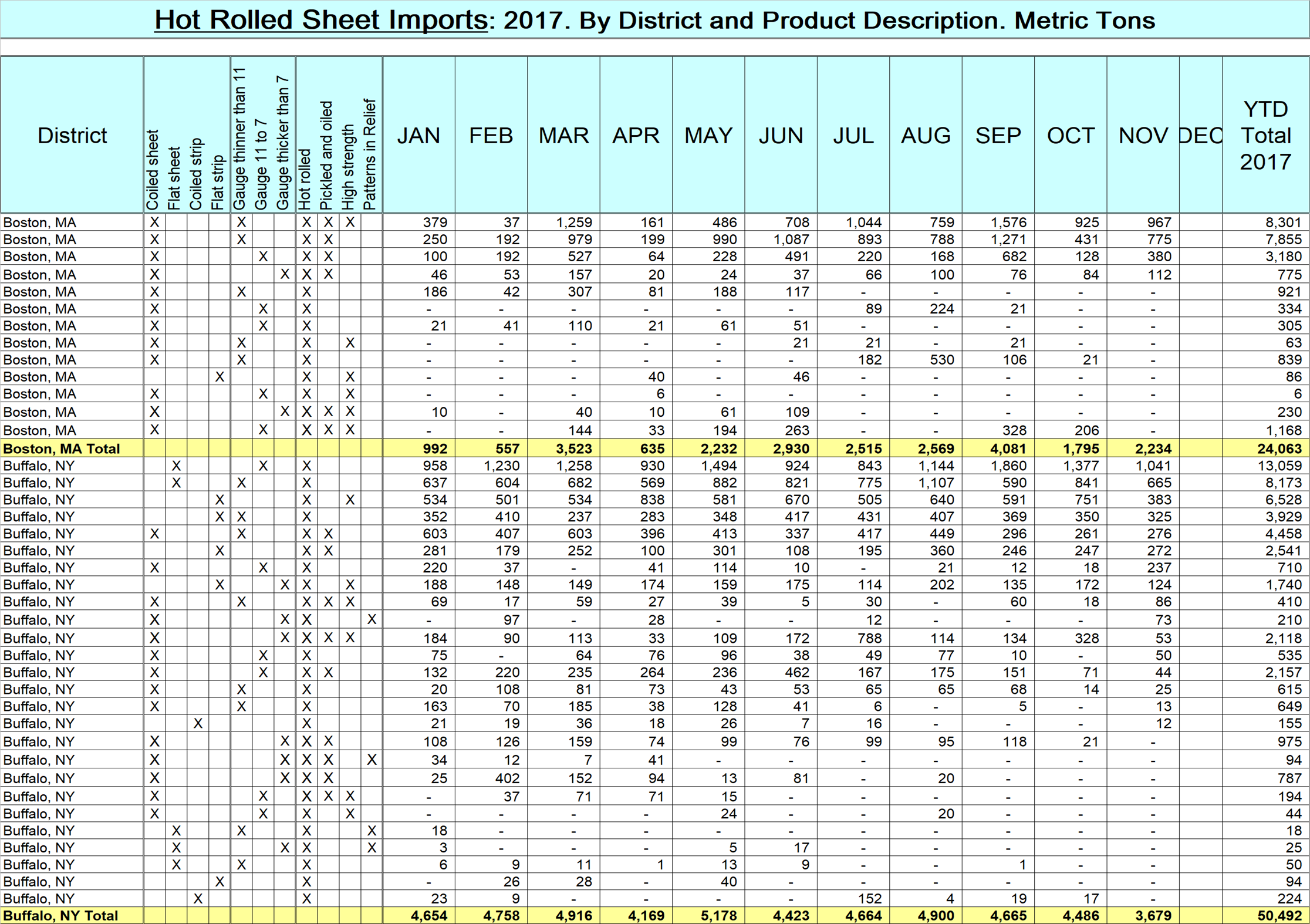Market Data

January 11, 2018
New SMU Research: Hot Rolled Coil Imports with Product Detail
Written by Tim Triplett
Premium subscribers to Steel Market Update receive reports on imports with macro data broken down by product on the national level. SMU also provides reports that detail the import tonnage received by district of entry and source nation. This new report from SMU takes the analysis even further.
Using U.S. International Trade Commission (USITC) data, SMU takes the tonnage that arrives in each district monthly and year-to-date and breaks it down into sheet and strip, and whether it was in coil or leveled. Then it separates three thickness ranges, it identifies how much was P&O, how much was high strength and how much had patterns in relief.
The table below (click to enlarge) is an extract from the analysis and describes the imports that came into Boston and Buffalo monthly and year-to-date through November 2017. Premium subscribers can access the whole data series here on our website.
Examples of what the data shows are as follows:
- In 2017 year-to-date, the three highest volume items entering Boston were all pickled and oiled coil. Two were thin gauge < #11 and one was mid-range thickness # 11 to # 7. The highest volume item was high strength.
- The two largest volume categories entering Buffalo were leveled sheet in thin and mid-range gauges.
- All five of the items listed above had a steady rate of delivery in the first 11 months of 2017, suggesting an established customer base.
We will continue to study this data to see what else we can extract from it. For example, it would be useful to know, at the national level, how much of the HRC tonnage fell into the 11 product categories we have identified in this analysis.
SMU Comment: It’s one thing to know the volume of HRC that entered your district from offshore, but it’s entirely another to know the characteristics of that material and whether it competed with your business. Also, knowing what the material was not could be valuable information as regards the volume of imports that do compete with your business. For example, it could be that 80 percent of the material that entered your district was irrelevant in terms of the business you are in. We hope you find this type of analysis useful in managing your company and in negotiating with your suppliers, and we welcome your comments before embarking on a similar analysis of other flat rolled products.
Note: This data was accessed through the USITC database. All steel traded globally is classified by the Harmonized Tariff System (HTS). The HTS code has 10 digits. The first six are globally universal. The last four are at the discretion of the nations involved in a particular transaction. For example, the U.S. has used the last four digits to define the product in a specific way. The EU uses the last four digits for its own ideas of product classification.








